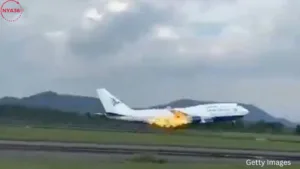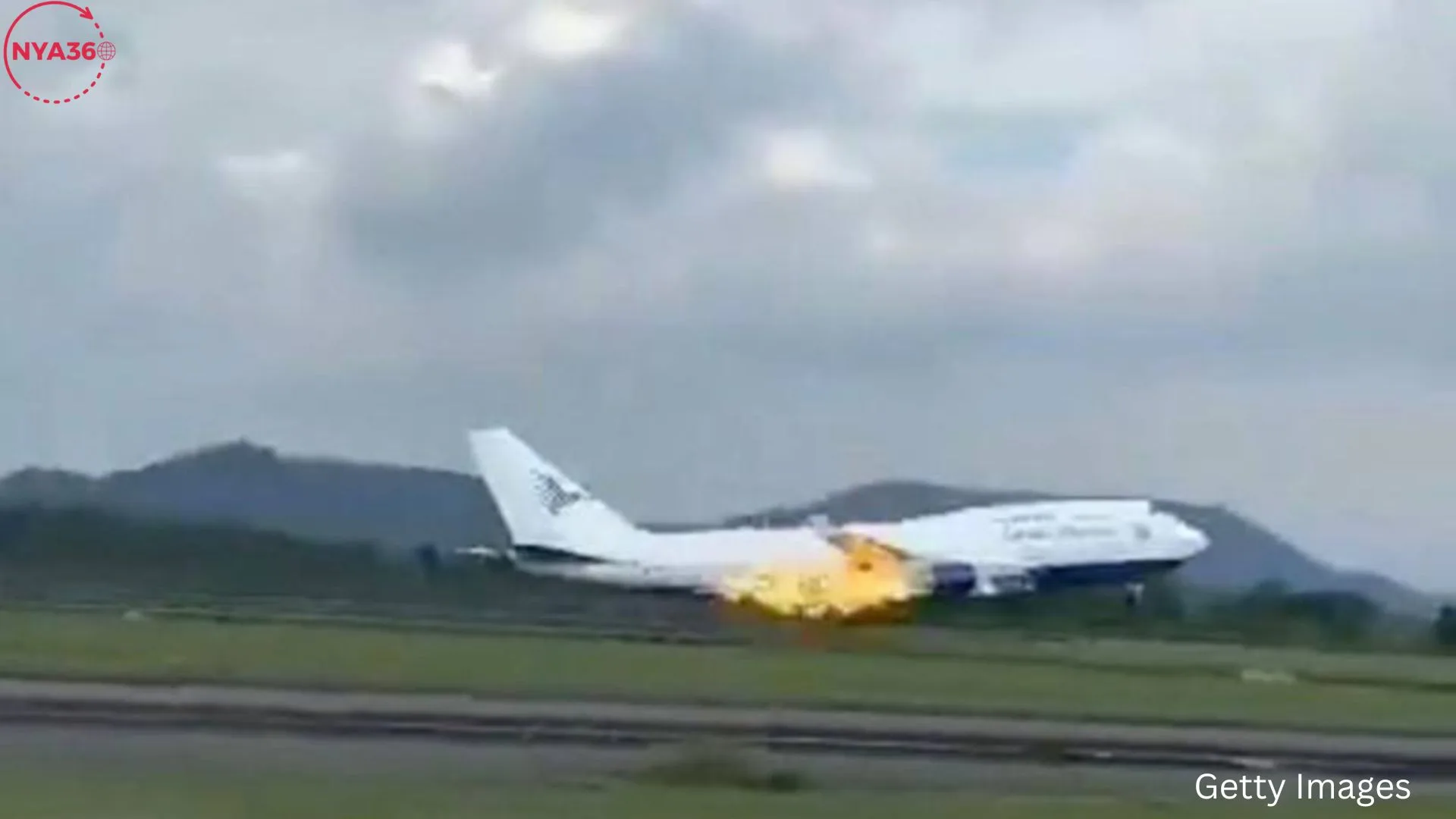An engine fire that occurred shortly after departure from Makassar abruptly halted the journey of passengers on a Garuda Indonesia Boeing 747 to Saudi Arabia, subjecting them to a distressing emergency. The occurrence has sparked renewed apprehensions regarding aviation safety and prompted pressing inquiries regarding the necessity for augmented regulatory supervision and proactive strategies to avert analogous crises in subsequent instances.
The Boeing 747, an emblematic long-haul aircraft and operational mainstay, came under public scrutiny when smoke and flames emanated from one of its engines, compelling emergency procedures to be initiated and an unscheduled landing to be prepared for. The individuals present on board documented instances of distress and ambiguity as they readied themselves for the unknowable and confronted the fact that their expedition had deviated into a hazardous detour.
Without a doubt, the expeditious reaction of the flight crew and emergency personnel prevented a possible catastrophe, guaranteeing the secure removal of both crew and passengers during the approach and descent. Nevertheless, the occurrence has prompted renewed demands for thorough safety inspections and checks of aircraft engines to detect and resolve potential problems before they escalate into critical situations that endanger lives.
🚨 BREAKING: BOEING 747 ENGINE FIRE FORCES EMERGENCY LANDING
A Garuda Indonesia Boeing 747, en route to Saudi Arabia, was forced to make an emergency landing shortly after takeoff from Makassar due to an engine fire.
Source: AP pic.twitter.com/M8DzCRfyxe
— Mario Nawfal (@MarioNawfal) May 16, 2024
As information regarding the engine fire proliferated, inquiries emerged regarding the efficacy of current safety protocols and regulatory frameworks in mitigating the occurrence of similar incidents. Aviation authorities perform routine maintenance and inspections on commercial aircraft. However, the incident involving the Garuda Indonesia Boeing 747 highlights the critical nature of maintaining increased vigilance and implementing proactive measures to identify and mitigate potential risks.
As the emergency landing transpired, demands for government intervention to suspend all Boeing 747 aircraft and conduct comprehensive engine inspections to ensure the safety of passengers and crew members have increased. An examination of maintenance records, engine components, and operational procedures is deemed crucial by detractors to avert subsequent occurrences and reinstate the general public’s trust in air travel.
It is impossible to exaggerate the urgency of the situation, especially considering the potential repercussions that engine failures at high altitudes could have. Despite the presence of emergency protocols and redundant safety systems in contemporary aircraft, the potential for catastrophic engine failures remains a significant peril to the well-being of passengers. This emphasizes the criticality of adopting proactive measures to mitigate these risks.
Given the increasing apprehensions, aviation regulators and industry stakeholders must place safety as their foremost concern. This can be achieved by implementing rigorous inspection protocols and allocating resources towards cutting-edge technology that enables the identification and resolution of prospective engine problems before their transformation into critical situations. Furthermore, airlines must guarantee that their maintenance protocols conform to the most stringent safety and regulatory compliance standards, which are rigorously monitored by regulatory bodies.

The engine fire that occurred on the Garuda Indonesia Boeing 747 serves as a poignant reminder of the inherent dangers that accompany air travel and underscores the imperative for ongoing vigilance and enhancements to aviation safety protocols. Although the incident has undeniably impacted the confidence of both passengers and industry stakeholders, it also provides a chance for collaborative efforts and collective action to enhance safety protocols and avert similar crises in the future.
As inquiries persist into the origins of the engine fire, authorities must maintain an unwavering dedication to elucidating the fundamental factors that precipitated the incident and instituting preventative measures to avert analogous incidents in the future. Ensuring the welfare and security of both passengers and crew members should consistently take precedence over any endeavors to improve aviation safety and reinstate confidence in the atmosphere. Using collaborative efforts and steadfast commitment to safety, it is possible to guarantee that air travel will continue to be a dependable and secure means of transportation for all individuals.
Follow us on social media: Instagram, Threads & Twitter X @nya360_ YouTube & Facebook @nya360.





